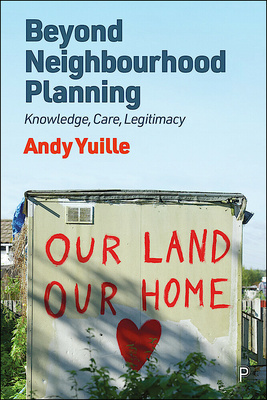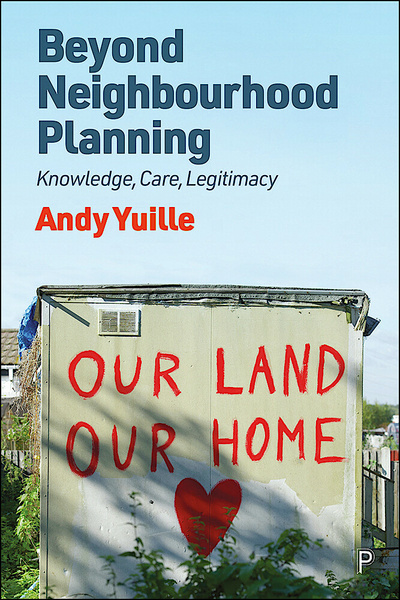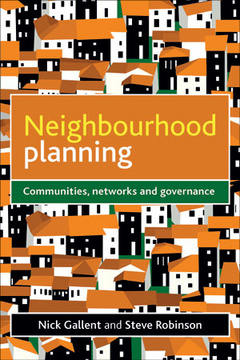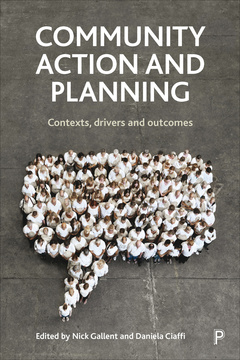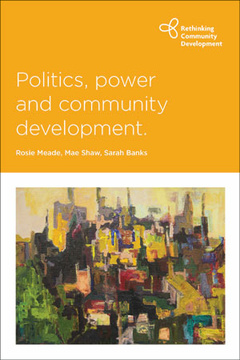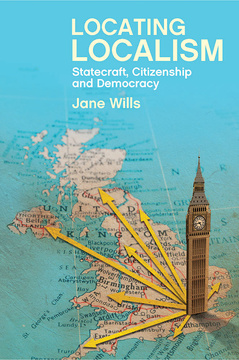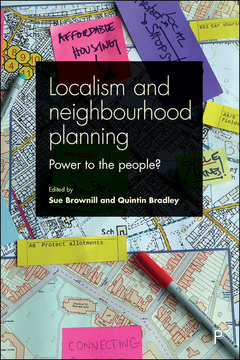Published
Jun 30, 2023Page count
312 pagesISBN
978-1447362845Dimensions
234 x 156 mmImprint
Policy PressPublished
Jun 30, 2023Page count
312 pagesISBN
978-1447362838Dimensions
234 x 156 mmImprint
Policy PressPublished
Jun 30, 2023Page count
312 pagesISBN
978-1447362852Dimensions
234 x 156 mmImprint
Policy PressPublished
Jun 30, 2023Page count
312 pagesISBN
978-1447362852Dimensions
234 x 156 mmImprint
Policy PressThe past three decades have seen an international ‘turn to participation’ – letting those who will be affected by outcomes play an active role in decision-making – but there is widespread dissatisfaction with actual instances of citizen-state engagement. Neighbourhood planning in England exemplifies this contradiction.
This innovative analysis brings theory, research and practice together to give insights into how and why citizen voices become effective or get excluded. Ethnographic data from detailed studies of neighbourhood planning are used to illustrate the constraints and possibilities of a wide range of participatory governance practices and social movements. The book concludes with recommendations to re-invigorate community involvement in planning and beyond.
“This is a must read for all those interested in England’s neighbourhood planning experience and in devising ways to tip the balancing act required in planning practices more in favour of citizen voices and local specificities.” Town Planning Review
“This impressive and well-written book provides a really useful contribution, highlighting the experiences of participants and linking with theory to give a thoughtful account of the dynamics and difficulties of localist participation in planning.” Gavin Parker, University of Reading
“This is the best thing I’ve ever read about community engagement in urban planning and about planning itself. It is razor-sharp and offers an incisive analysis that cuts through the layers of jargon and convention. Beyond Neighbourhood Planning is grounded in detailed ethnographic observation and applies a clearly articulated STS framework to demonstrate how knowledge, legitimacy and identity are manifested in neighbourhood planning. The book challenges the deficit model of community engagement, showing clearly the value that local knowledge brings to urban planning and disrupting the claims of objectivity that uphold planning expertise. Its critical analysis and international parallels establish the barriers to, and the potential for community engagement, clearly evidencing a new way of ‘doing planning’, one that is democratic, participative and informed by the values of people and place.” Quintin Bradley, Leeds Beckett University
Andy Yuille is Senior Research Associate with Eden Project Morecambe at Lancaster University.
1. Introduction: Neighbourhood Planners and the Turn to Participation
2. Planning, Participation, and Democratisation
3. Knowledge, Politics and Care: Perspectives from Science and Technology Studies
4. Neighbourhoods, Identity and Legitimacy
5. Experience, Evidence and Examination
6. Expertise, Agency and Power
7. Care and Concern
8. Conclusions: Neighbourhood Planning and Beyond







